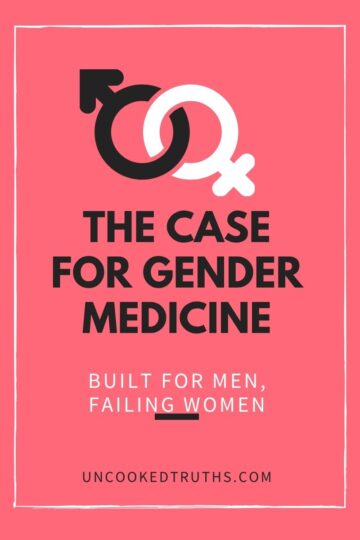This article explores how perimenopause and menopause affect relationships, why many couples struggle during this transition, and what both partners can do to stay connected and supported.
It started with small things: a short temper, sleepless nights, and less laughter. Before long, even simple conversations felt hard to finish.
This is the part of menopause we don’t talk about enough, not the night sweats, not the weight gain, but the distance it can wedge between couples who still love each other and don’t know how to fix what’s changed.
This article it’s about education. It’s for the women who feel like strangers in their own bodies, it’s for the partners who want to support them but don’t know how, and it’s for anyone ready to rewrite the outdated story that says menopause is the end of connection.

Jump to:
It’s Not Just You, It’s Not Just Him
You’re not imagining it, you’re not overreacting, and your relationship isn’t falling apart because you’ve suddenly become "too sensitive," or "cold," or "impossible."
If you’re in perimenopause or menopause and feel like your partner doesn’t understand what’s happening to you, or worse, is pulling away because of it, you’re not alone. I’ve lived it, and like many women, I went through years of unexplained symptoms, brushed-off emotions, and the quiet erosion of closeness in my marriage until we finally understood what was really going on.
The Hidden Impact of Perimenopause and Menopause on Relationships
Before menopause shows up on a lab test, it shows up in your relationship.
You might start snapping over small things, then feeling guilty for days. You may avoid intimacy because of pain or fatigue, without knowing how to explain it. You might find yourself crying over a burned dinner or unable to focus during a conversation, wondering, What is wrong with me?
What’s "wrong" is that your hormones are changing, often without warning, diagnosis, or support. And while the internal symptoms are real, like mood swings, anxiety, sleep issues, brain fog, or joint pain, the external impact can be just as brutal:
You stop feeling like yourself. Your partner stops recognizing you. And neither of you knows what to do about it. That’s not a personal failing; it’s the natural fallout of a biological shift that’s still treated like a private shame or a joke.
“I started dreading my husband coming home,” one woman told me. “Not because I didn’t love him, but because I didn’t have one more ounce of energy left to explain why I was so irritable, tired, or numb.”
That emotional exhaustion isn’t just about menopause, it’s about carrying the full weight of change without shared language or support.
Why So Many Partners Don’t Understand
From ancient times, women have been labeled as unstable, hysterical, or irrational, largely because of hormonal fluctuations. What’s often ignored is that men have hormones too, and theirs fluctuate as well. Testosterone rises and falls. Men experience mood swings, low energy, and even depression. Yet when a man is irritable or withdrawn, it’s called burnout or stress. When a woman reacts the same way, it’s dismissed as being "hormonal."
If a man has high testosterone, he’s seen as strong, assertive, and alpha. But a woman with high estrogen? She’s called dramatic, crazy, and difficult. These double standards are not just insulting; they shape how partners respond to each other during menopause.
Perimenopause and menopause have been silenced for generations. Many of our mothers and grandmothers suffered in silence, convinced that emotional distress or physical pain was just part of being a woman. That legacy didn’t disappear, it got passed down.
Most men weren’t taught anything about menopause. Not in school, not from the media, not even from their own families. The result is a complete lack of awareness about what their partners are actually going through.
This cultural gap leads to misunderstandings. A woman experiencing rage, anxiety, or tears may be told she’s being dramatic. A partner who dismisses these symptoms out of ignorance, not cruelty, still causes harm.
One man said, "I thought she was just stressed from work. I had no idea her hormones could be behind all of it."
Misogyny doesn’t always come from malice. Sometimes it shows up as disbelief, as silence, or as an unwillingness to ask questions.
And when women are dismissed by doctors, coworkers, or partners, the message is the same: Your suffering doesn’t matter.
The good news is that there is a movement in medicine that is growing, and it is called medical feminism. Medical feminism advocates for equitable, evidence-based, and respectful care that takes women’s biology, life stages, and lived experiences seriously, from adolescence through postmenopause. It challenges cultural, institutional, and scientific biases that dismiss women’s symptoms, limit access to effective treatments, and perpetuate health disparities.
When Misunderstanding Becomes Relationship Strain
When menopause symptoms go unrecognized, they don’t just affect the woman, they destabilize the relationship.
Studies show that over 70% of midlife divorces involve women who say their symptoms were either dismissed or misunderstood by their partners. Emotional disconnection, constant tension, or avoidance of intimacy can all create a wedge.
Some partners retreat. Some blame. Some shut down completely. And many women begin to question whether they’re still lovable, still desirable, still worth staying for.
That is the cost of silence. That’s what happens when we treat menopause like a taboo instead of a transition.
Education Changes Everything
This isn’t a hopeless stage, but it is a wake-up call. And education is the difference between falling apart and growing together.
When partners begin to understand the hormonal shifts and physical changes their spouses are facing, the tension often lifts. It becomes easier to stop personalizing the distance and start showing up with empathy.
Organizations like The Menopause Society offer science-based resources that partners can read or explore together. Some couples even attend doctors’ appointments as a team.
"Once he realized I wasn’t trying to push him away, that it was my body betraying me, everything shifted," one woman said.
Listening matters. So does asking the right questions:
- What do you need from me right now?
- Is there something I’ve misunderstood?
- How can we face this together?
Those conversations can change the course of a relationship.
What Couples Can Do Right Now
You don’t need to be perfect. You need to be present. Here’s where to start:
- Talk, but don’t fix. Partners, resist the urge to offer solutions. Just listen. Let her be angry. Let her cry. Let her explain the things she’s ashamed to say out loud.
- Learn together. Read. Ask questions. Seek medical guidance when needed. The more you know, the less you fear.
- Adjust expectations. Energy, libido, or patience, all shift. Be flexible. This is a new season, not the end.
- Share the load. Fatigue is real. Help more. Nag less. Act like a teammate, not a manager.
- Normalize change. Don’t make her feel like she’s failing. Make her feel like she’s still in this with someone who sees her. Have some empathy.
Moving Forward, Together
Menopause will change you. It will change your relationship. But it doesn’t have to break either one.
This season can be one of survival, or it can be one of reconnection. That choice begins with empathy, education, and the willingness to have hard conversations.
If you’re a woman navigating this shift, share this article with your partner. If you’re a partner, read it again, and then ask how you can show up better.
Because no one should go through this alone.
Resources:
Related reading
- Menopause, Marriage & Support
- Why Is Menopause Hormone Therapy Treated Like a Dirty Word?
- Breaking the Silence Around Menopause Hormone Therapy
- 8 Quiet Ways to Dismantle the Patriarchy
- Menopause Support for Husbands: What You Need to Know






Leave a Reply